Chickpeas — also called garbanzo beans — are a fairly versatile legume that makes their way into many people’s diets. They’re regarded as healthy food, so people on a keto diet often wonder, are chickpeas keto? The short answer is no, chickpeas aren’t typically considered to be keto friendly food. However, you can enjoy them in small quantities without threatening your state of ketosis.
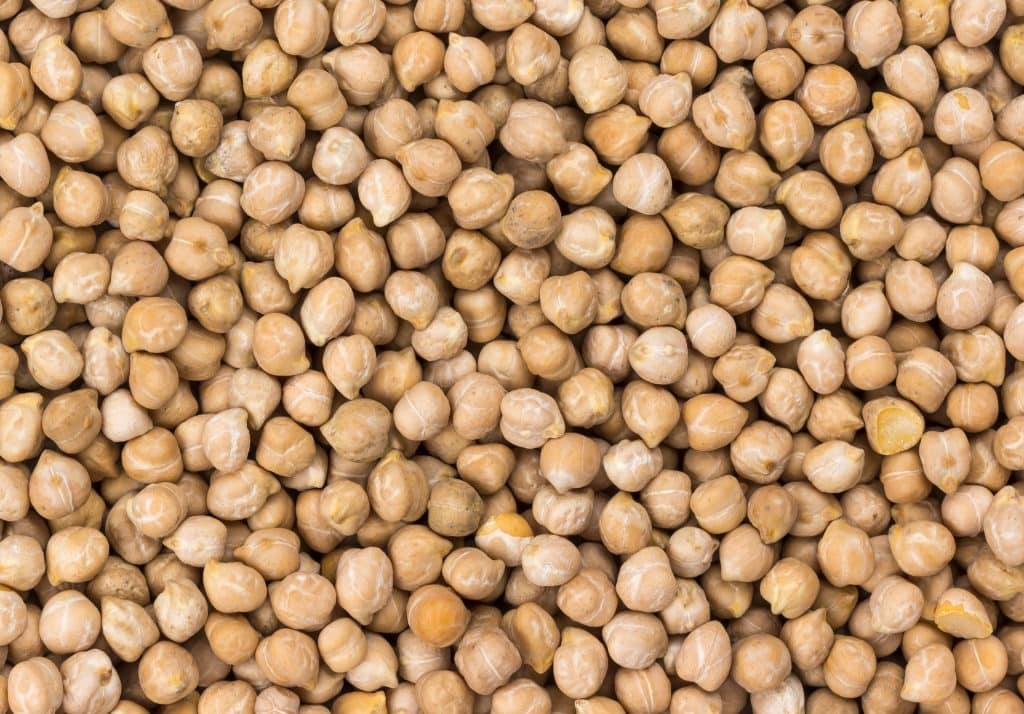
Below, we’ll explain why chickpeas aren’t ideal for a ketogenic diet, exactly how many carbs are in chickpeas, what else you can put on your keto shopping list get your chickpea fix without consuming so many carbohydrates, and more. Let’s get started!
Why Aren’t Chickpeas Ideal On a Keto Diet?
KetoConnect verdict: We give chickpeas a keto-friendly rating of ⭐⭐(out of 5)
The idea behind staying on a keto diet is to maintain a state of ketosis. In ketosis, your body uses fat as a source of energy rather than glycogen, which is a stored form of carbohydrates found primarily in your liver and muscles.
Your body naturally prefers to use carbs as a fuel source, so any excess carbohydrates you consume are stored as glycogen for use during periods between meals. Sometime after your glycogen stores are depleted on a keto diet, your body will turn to fat for energy.
Unfortunately, consuming a significant volume of carbs at any time after you’ve reached ketosis will cause your body to turn back to glycogen for energy. As such, eating foods that are high in carbs will bring you out of ketosis.
Chickpeas generally aren’t recommended on a keto diet because they are moderately high in carbs. Most keto dieters aim to consume fewer than 50 grams of carbs per day. If you eat more than 1/2 cup cooked chickpeas, they can bring you above this limit and out of ketosis.
When you eat 1/2 cup cooked chickpeas you will intake around 20g of carbohydrates. Most of these carbs are starches which will cause your blood sugar to spike, which triggers your body to revert to glycogen for fuel.
How Many Carbs Are There In Chickpeas?
The calories in chickpeas predominantly come from carbohydrates. A cup of boiled chickpeas contains approximately 45 grams of carbs total, which includes 12 grams of net carbs per serving. That means a cup of cooked chickpeas is anything but low carb, delivering around 33 grams of net carbs. Since most people on a keto diet aim for 50 grams of carbs or fewer per day, a serving of chickpeas could account for about 65% of your daily allowance.
About 8 grams of sugar are also included in that 45 grams of total carbs. Although this is an unrefined sugar, you might want to avoid eating chickpeas if you’re trying to minimize your risk of a blood sugar spike.
Can I Eat Chickpeas on Keto?
While eating a standard portion of chickpeas will likely bring you out of ketosis, it is possible to have a small amount each day without triggering your body to use glycogen for energy again.
Since your goal is not to consume zero grams of carbs but instead maintain a low-carb diet, you could technically eat chickpeas and just count the carbs you’re consuming until you approach your limit.
For example, if you aim for 50 grams of net carbs or fewer per day, you can have an entire cup of cooked chickpeas as long as you limit carbs outside of that meal to around 17 grams or fewer.
Chickpeas provide some health benefits due to their high vitamin and mineral content, so you can work a small amount into your keto diet daily and still remain in a state of ketosis.
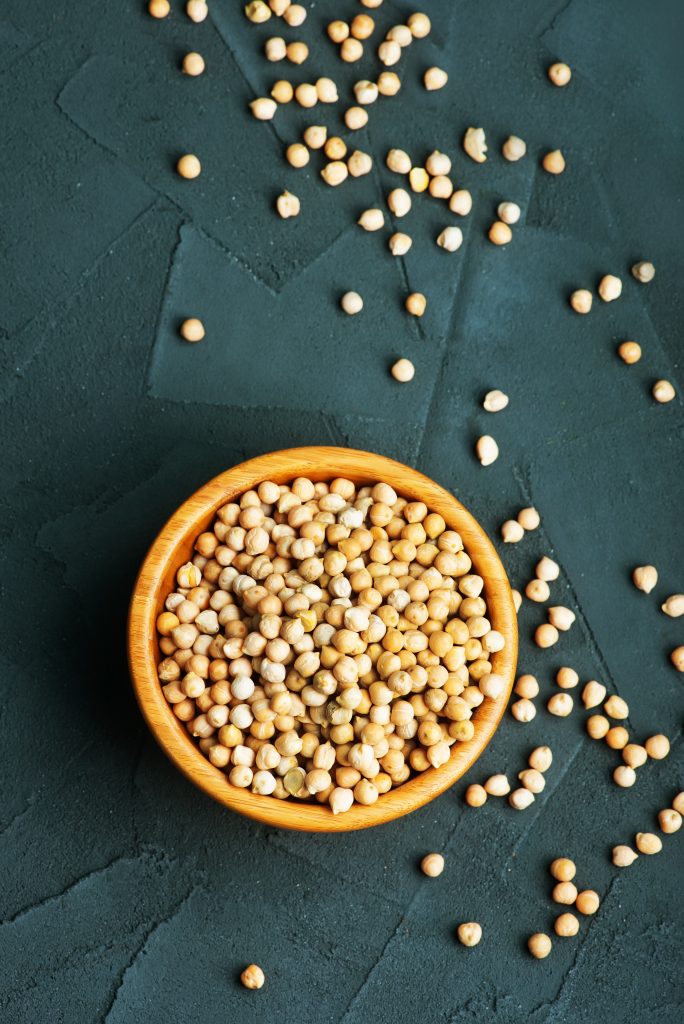
Is Hummus Keto?
Hummus is made of chickpeas and is arguably an even more popular food. It’s still considered a healthy food by many, especially by vegetarians and vegans who use it as a plant-based source of protein and fat.
Since it’s made of chickpeas, hummus does have carbohydrates in it. However, it is more of a low carb option than chickpeas alone, so it’s considered a better option for keto dieters than straight chickpeas.
A serving of two tablespoons of Sabra hummus contains around 4g of carbs, which includes 2g of dietary fiber and 0g of sugar. That means one serving will deliver just 2g of net carbs, a much more reasonable amount to fit into a low carb diet.
While hummus does contain some carbs, it’s generally considered low carb enough to be suitable for a ketogenic diet in small quantities. While a cup of cooked chickpeas would bring you to about 60% of your total carb intake for the day, you’d have to eat around 30 tablespoons of hummus to get the same amount of net carbs — that is a lot of hummus!
However, most store-bought hummus options are not considered keto for another reason: they contain unwanted ingredients, like canola oil, soybean oil, and sunflower oil. These oils contain trans fats that bring adverse effects when you consume them, like an increased risk of heart problems and inflammation.
As such, hummus might be a good, relatively low carb option for keto dieters, but store-bought hummus should generally be avoided at all costs. At the very least, you should pay great attention to the list of ingredients for any product before you buy it.
What Are Some Keto Friendly Alternatives for Hummus?
Hummus can be a convenient and delicious snack in small quantities for keto dieters, but it will still deliver carbs that could be better enjoyed elsewhere. Even worse, the relatively low number of net carbs in hummus could push you out of ketosis if you consumed carbs elsewhere during your day.
That’s why many people on a keto diet look for keto hummus alternatives to eat conveniently on the go or as a quick snack. Below are three hummus alternatives we love and eat regularly!
Cauliflower Hummus
Cauliflower is a popular vegetable in keto recipes because an entire head contains just 17 grams of net carbs. Plus, it’s very versatile and can be chopped or blended to create varying consistencies in keto dishes.
Our recipe for easy cauliflower hummus is one of our recent favorites. It’s super simple to make and will bring a smile to anyone’s face, whether they’re on a keto diet or not. We love to serve this keto hummus alternative when we have a company with celery, broccoli, or our homemade keto chips.
Our cauliflower hummus has very few net carbs and contains healthy fat options, like olive oil or avocado oil. As such, you can feel free to indulge a little more than you would with regular hummus or other alternatives. It’s also relatively low in calories, so it’s easy to consume as a convenient snack and still remain at a caloric deficit.
Avocado Hummus
Avocados are always on our keto shopping list. They’re high in healthy fats, low in carbohydrates, and they’re downright delicious. If we’re in the mood for dipping into some hummus, we always have the option to make some out of avocados.
We developed our beloved avocado hummus recipe as a homemade alternative to the store-bought options. It contains no trans fats, no unhealthy ingredients, and even has some chickpeas in it to give it that classic hummus texture. No unhealthy oils here!
Avocado is much higher in calories than cauliflower, so be sure to count your calories and stay under your daily allowance if weight loss is your primary goal.
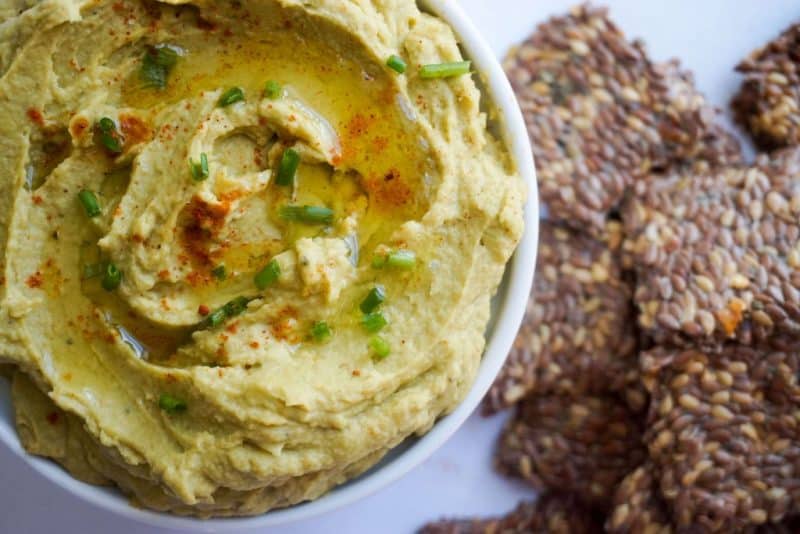
Homemade Chickpea Hummus
Of course, you always have the option of just making hummus yourself. Homemade hummus won’t contain those unwanted oils that deliver trans fats, and it will always taste fresher than anything you could buy in the store.
Most hummus recipes contain garbanzo beans, keto friendly extra virgin olive oil, lemon juice, and tahini. Be careful when consuming homemade hummus, as it will naturally be higher in carbohydrates than most store-bought options, even if it does contain healthier ingredients.
Is It Keto?
We have a selection of articles concerning some of the most commonly discussed ingredients on a keto diet. Read some of them if you are uneasy about any of these foods.
- Are Mushrooms Keto?
- Are Onions Keto?
- Is Pumpkin Keto?
- Are Beets Keto?
- Are Radishes Keto?
- Is Garlic Keto?
- Is Watermelon Keto?
- Is Edamame Keto?
- Are Lentils Keto?
- Is Hummus Keto?
- Is Cassava Flour Keto?
Wrapping Up: Do Chickpeas Belong On a Keto Diet?
While you can technically eat very small amounts of any food and still remain in ketosis, chickpeas shouldn’t be eaten on a daily basis while practicing keto. They’re high in carbs and can quickly bring you over your daily limit, compromising your state of ketosis. Additionally, chickpeas contain a decent amount of sugar, which can cause a spike in blood sugar and threaten ketosis even further.
It’s possible to work in very small volumes of chickpeas, but you should be careful not to consume too many net carbs in the process.
Many keto dieters enjoy hummus as a convenient and tasty snack, so they wonder if hummus is acceptable on a ketogenic diet. Hummus is lower in carbs than chickpeas per serving, so it’s generally a better option.
However, most store-bought hummus contains unwanted oils that have unhealthy trans fats, so making your own hummus or keto hummus alternative is a much better option.
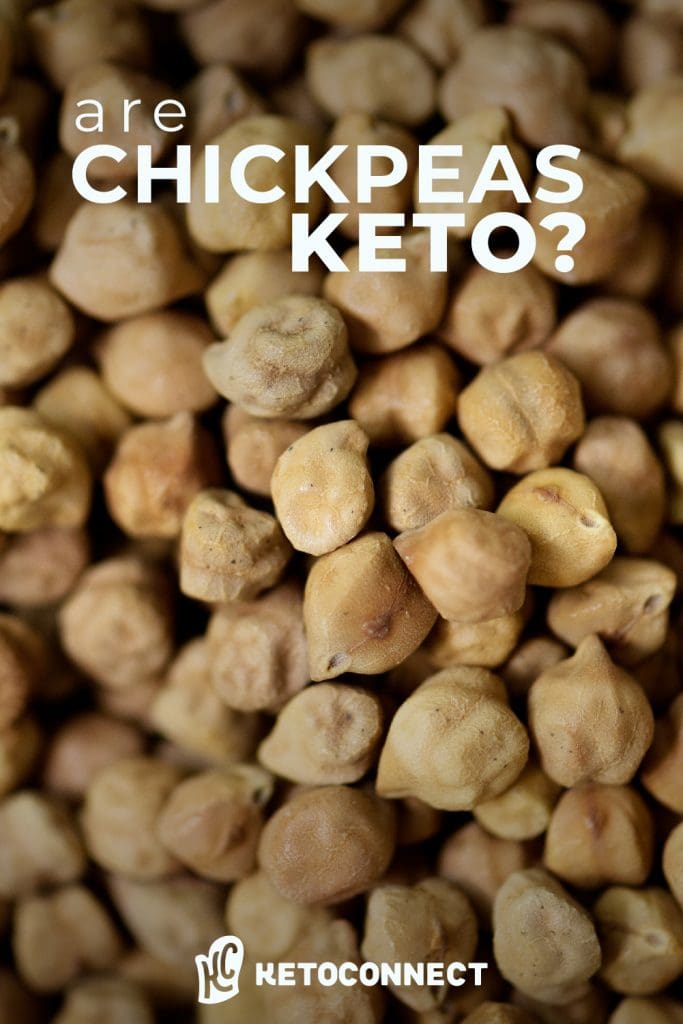
Written by
Matt Gaedke
Matt is a former college basketball player turned computer engineer who discovered his passion for health and nutrition after cutting sugar from his diet in 2016. That year he founded KetoConnect with Megha in order to share their ketogenic lifestyle through recipes, videos, and educational content. Matt is always seeking to grow and try new things, a passion he shares with his wife and two amazing sons.
Expert Fact Checker
Marina Reluskoska
Marina is a licensed nutritionist with a keen specialization in food laws and dedication to shaping healthier lives. Beyond her professional journey, she finds joy in crafting culinary creations, embracing an active lifestyle, and cherishing quality moments with friends. In both food and life, she believes that balance is the key to nurturing well-being.
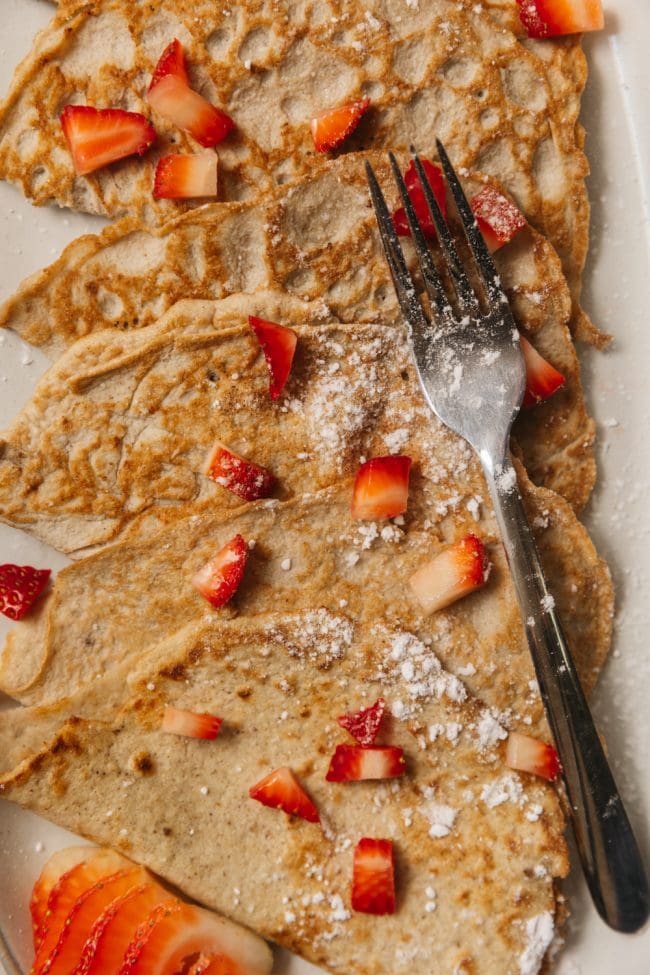
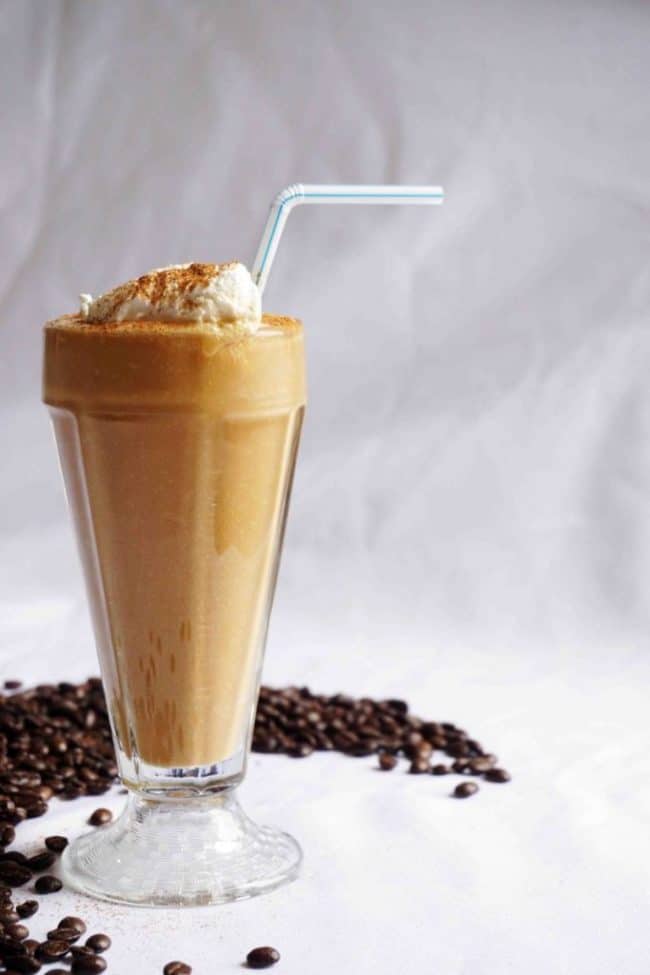
Leave a Comment